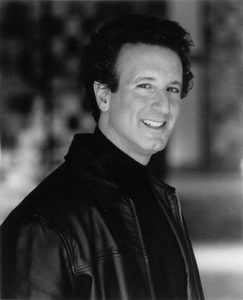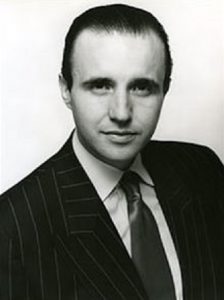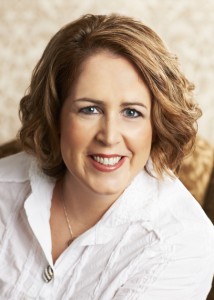Jon Land is the prolific author of more than forty books. His thriller novels include the Caitlin Strong series about a fifth-generation Texas Ranger, and the Ben Kamal and Danielle Barnea books featuring a Palestinian detective and an Israeli chief inspector of police. He also has penned the Blaine McCracken series, many standalone novels, and non-fiction books. Jon was a screenwriter for the 2005 film Dirty Deeds. He is an active member of the International Thriller Writers Organization.
Fabrizio Boccardi, the creator of the character Max Younger, is an entrepreneur, investor, producer, and CEO and chairman of the board of King Midas World Entertainment, Inc. He’ s also the creator and owner of the multimedia brand and franchise, the Tyrant.
s also the creator and owner of the multimedia brand and franchise, the Tyrant.
Dark Light: Dawn introduces the reader to Navy SEAL Max Younger, a man with uncanny abilities to survive any combat situation. Max becomes involved in trying to stop a plot that could bring about an apocalypse of biblical proportions.
Victoria Tanoury, the only woman Max ever loved, is an infectious disease specialist working for the World Health Organization. She, too, is trying to stop the worldwide spread of a deadly pestilence.
Their paths meet as the lines between science and superstition become blurred, and they must deal with the evil of one man who wants to visit the end of days upon civilization.
This book is the result of a creative collaboration. How did it come about?
Jon: The original collaboration began in 2006. Fabrizio was looking for a writer to bring his vision to reality. When my publisher heard his concept—a rags-to-riches story about a penniless kid rising to the heights of power—he recommended me to Fabrizio. He put us together and we created a two-book series featuring Michael Tirano, ‘The Tyrant.’ In the midst of writing those two books, The Seven Sins and Black Scorpion, Fabrizio came up with the concept of Dark Light: Dawn.
Fabrizio: There’s a back story to that. I’m an investor and tried to purchase a casino company in Las Vegas. During that experience, I gained a great deal of knowledge about that town and wanted to create a character who would build the kind of casino I had wanted to build in Las Vegas. And, that’s how The Seven Sins came into being.
Among other things, “Dark Light: Dawn” involves geopolitical events, terrorism, and religious conflicts. How and why did you decide to address these elements in your storytelling?
Jon: It began with the concept of good versus evil. It’s a classic theme of much fiction and in particular, of horror fiction. We wanted to create a hybrid thriller involving science, superstition, action, and horror. If you look at all classic horror novels such as Dr. Jekyll and Mr. Hyde, Frankenstein, and Dracula, they probe the issue of good versus evil and the nature of man. But none of them explored the origins of the battle between good and evil.
We wanted to address that issue in Dark Light: Dawn, while creating a ‘techno-bio-end-of-the-world-dystopian thriller.’
No one character in the story knows everything. But, if the reader adds up the points of view of each character, the entire story unfolds. The scope and sprawl of the story become evident.
Fabrizio: I’m fascinated by movies and books like The Exorcist. I always thought there’s a great deal of superstition in that story, but there’s also a great deal of paranormal activity in the world. In Rome, the Vatican has an exorcist. There are many strange and unexplainable things in this world.
I often question what we really know about the universe. People argue about whether or not God exists. The fact of the matter is there are many things we cannot know.
Jon and I wanted to write a story about good and evil; a story that taps into these issues, but that’s also action-packed and has at its core, the concept that we have the right to choose between good and evil. We have free will. We also agreed to incorporate a good deal of ambiguity into the story which makes it more interesting and frightening—as occurs in The Exorcist, where the audience doesn’t know how the evil came about.
The unknown is far more frightening than that which is understood.
Max Younger has extraordinary physical and mental abilities. The novel details various genetic anomalies contributing to his powers. He seems a perfect model for a superhero and a potential movie, television, or comic book character.
Jon: The great superheroes, starting with Batman, are based on the duality of their natures. There’s an evil side to them that they must control in order to do and be good. This is the nature of the classic Greek superhero and of superheroes in general. There’s always a flaw and a quest, but there’s always a temptation for the hero to go to the dark side. Batman dresses in black. In the book Shane, the hero dresses in black.
Every great superhero has a moment in his life that changes him forever. If you look at the classic qualities of a comic book superhero, Max has them all: conflict about his nature; the moment of change where he evolves into something different and greater than he had been; a purpose far greater than that of the common man; and the acceptance that purpose will change him forever. He knows can no longer live as he once did, if he accepts the responsibility of being a hero. If he’s going to save the world, he cannot live among men.
Fabrizio: Today, we see atrocities in the world. Our idea was to depict geopolitical events occurring in the world, and mix fiction and reality. There’s the concept of the devil wreaking havoc on earth, but rather than bringing God to fight the battle, we decided to depict a powerful energy coming to the world in the form of a man, Max Younger. He chooses of his own free will, to fight evil and clean house.
Jon: And by choosing to become a hero, Max cannot really be who he had wanted to be. He must sacrifice something, but I won’t say what it is and risk providing a spoiler.
Fabrizio: The ultimate idea behind this concept is that love can conquer evil.
“Dark Light: Dawn” has some of the most vivid action scenes out there. Jon, tell us your thoughts about writing such scenes.
These books—including The Tyrant series—are the foundation for multi-media franchises. They’re going to be movies. With that in mind, we approached this book in terms of its visual aspects. In a sense, it’s kind of like the novelization of a film. We have a rich tapestry of action scenes, but we strove to come up with action scenes never before seen in either movies or books. We’ve never seen an action scene staged with the abilities Max is starting to develop. What makes the action scenes pop visually and viscerally, is that with each action scene in the book, Max evolves more and more into who he will ultimately become. The action scenes are not just defined by their choreography, but also by their revelations about his character. Neither Max nor the reader realizes exactly what’s happening to him as the story unfolds.
It’s the classic movie and book theme of metamorphosis.
Fabrizio: The concept is also dealing with Max’s decision—by virtue of free will—not to bring horror to the world, but to fight evil.
Based on what you’ve both said and on my having read the novel, is it correct to assume this is the beginning of a series?
Fabrizio: Yes, and ultimately we hope to see this become a movie and see where it all goes.
For each of you, is there any one novel that may have influenced you in ultimately conceiving of this book.
Jon: I’m going to go with my favorite book of all time, The Stand by Stephen King, the original version. It’s King’s masterwork. It combines horror, thriller, and dystopian elements, and it still gives me chills.
Fabrizio: I love getting scared when I read novels. For me, the book would have to be The Exorcist. In a sense, that novel is partly what spawned Dark Light: Dawn, but I wanted much more action to interest a movie audience. I think The Exorcist is an excellent concept, extremely well written, and frightening because it’s inexplicable.
Congratulations on conceiving and penning “Dark Light: Dawn.” It’s a high-octane novel of epic proportions blending science, religion, current events, superstition, action, and adventure in a can’t-put-it-down tale.





 Kelley Armstrong has published twenty-one fantasy novels, thirteen of which have been part of her Women of the Otherworld series. Her novels blend suspense and the supernatural. Last year, she began The Cainsville series with its first novel, Omens. The second in this series is Visions,featuring Olivia Taylor-Jones, the daughter of alleged notorious serial killers.
Kelley Armstrong has published twenty-one fantasy novels, thirteen of which have been part of her Women of the Otherworld series. Her novels blend suspense and the supernatural. Last year, she began The Cainsville series with its first novel, Omens. The second in this series is Visions,featuring Olivia Taylor-Jones, the daughter of alleged notorious serial killers.